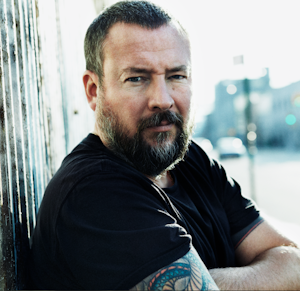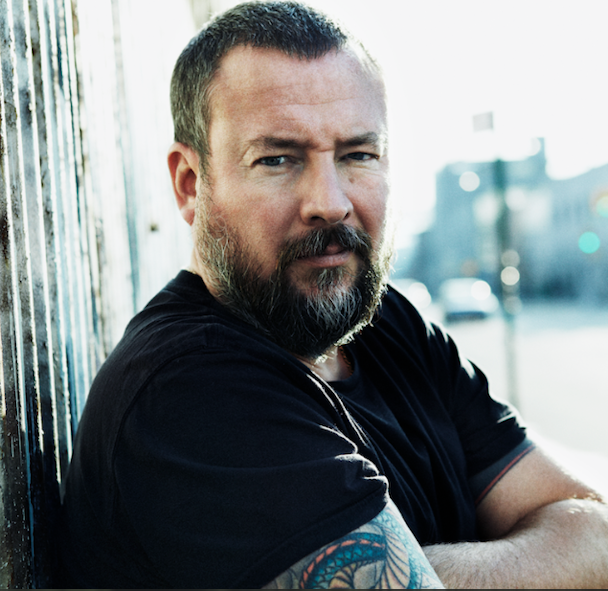Vox Pop: Are broadcasters really ditching millennials?
Co-founder and chief executive of Vice, Shane Smith, blamed broadcasters for leaving millennials behind at his recent MacTaggart lecture at the Edinburgh TV Festival. Smith accused broadcasters of out-casting the youth through the "babyboomer's stranglehold" of the media. In an interview with Channel 4's Jay Hunt, Smith defended himself against criticisms and claimed that millennials aren't being catered for in terms of providing relative content, in the midst of broadcasters trying to remake what has already been successful before. The Drum Network asks its members whether they agree with Smith, and how broadcasters can become more inclusive of the younger generations.


Shane Smith
Hannah Schneider, creative, That Lot

As a (after googling the parameters to double check I qualify) millennial, I disagree with this. TV is full of documentaries tailor-made for our generation – BBC Three's 'Virtual Reality Virgin' even had Tyger Drew-Honey from Outnumbered having sex with a robot, and you literally can’t get more hard-hitting than that.
Though I agree broadcasters are increasingly turning back to successful formats (and I believe I speak for all of Generation Y when I say we’re SO excited for 'The Crystal Maze'), there’s nothing to say that those formats aren’t relevant to us – sure, we’ll never afford any of the houses on 'Escape To The Country', but we can still appreciate a nice house.
Besides, how anyone can feel that there’s a lack of hard-hitting content for millennials when a show like 'Ex On The Beach' exists is totally beyond me.
Steve Hickman, media director, RAPP

If what Shane Smith is saying is that television is failing to capture the imagination of millennials in the same way that it captured previous generations, then he is undoubtedly correct. Millennials certainly do watch TV content albeit in an increasingly time shifted manner, on different platforms, and more often than not on a TV. It is also the case that this ‘digital first’ generation instinctively turn to other sources of content than TV – they are half as likely as babyboomers to be heavy or even medium viewers of TV, but this is more because it does not fit into the total flexibility they demand.
I do, however, think that the UK is serving millennials better than some other countries, largely because of our public service heritage with the BBC (although you have to question the loss of BBC 3 to iPlayer) and Channel 4, and we need to also remember that not all of this demographic are constantly wanting to engage with worthy content regarding the environment. Much to my annoyance my own two apparently intelligent and engaged generation ‘Y’ers followed the machinations of 'Celebrity Big Brother' with a slavish devotion (although they claim in a purely “ironic” fashion...).
James Murphy, digital marketer, AB...the ideas agency

I agree with Shane Smith’s criticisms towards broadcasters for misrepresenting a large portion of viewers, in a time where possibilities for ideas are endless. It’s no wonder younger generations feel gravitated towards 'House Of Cards' and 'Breaking Bad', as the issues faced by the characters in these modern dramas, as well as the storylines have an overwhelming sense of realism. Whether it’s the subtle use of Twitter/iMessage on 'House Of Cards' or the raw characterization in 'Breaking Bad', these were both so fresh compared to previous offerings. Shows like 'Big Bang Theory' and 'How I Met Your Mother' were obvious attempts to rekindle the ‘Friends’ flame. Okay, 'House Of Cards' is a remake, but almost unrecognizable from the original due to the how it handles core themes of the program. This can be a testament to the growing trend that the consumer has more resources than ever now. Without Netflix, I wouldn’t have found the programming which has formed a greater part of my personality. We’ve never had so much choice, so there’s almost no point in targeting us. We have the ability to shape our own preferences and tastes. It’s up to broadcasters to respond to this accordingly…
Content by The Drum Network member:

RAPP
RAPP is a global, data-driven creative community that builds direct, meaningful and high-value relationships between brands and people. At RAPP, with our unrivalled...
Find out more
That Lot
Shareable. Original. Arresting. We provide great content to brands and broadcasters to help them grow audiences and cut through on social.
Find out more
AB...
Challenging Convention Since 1983.
Us
We are a talented group of creators, thinkers & doers, empowering and building brands through compelling...

